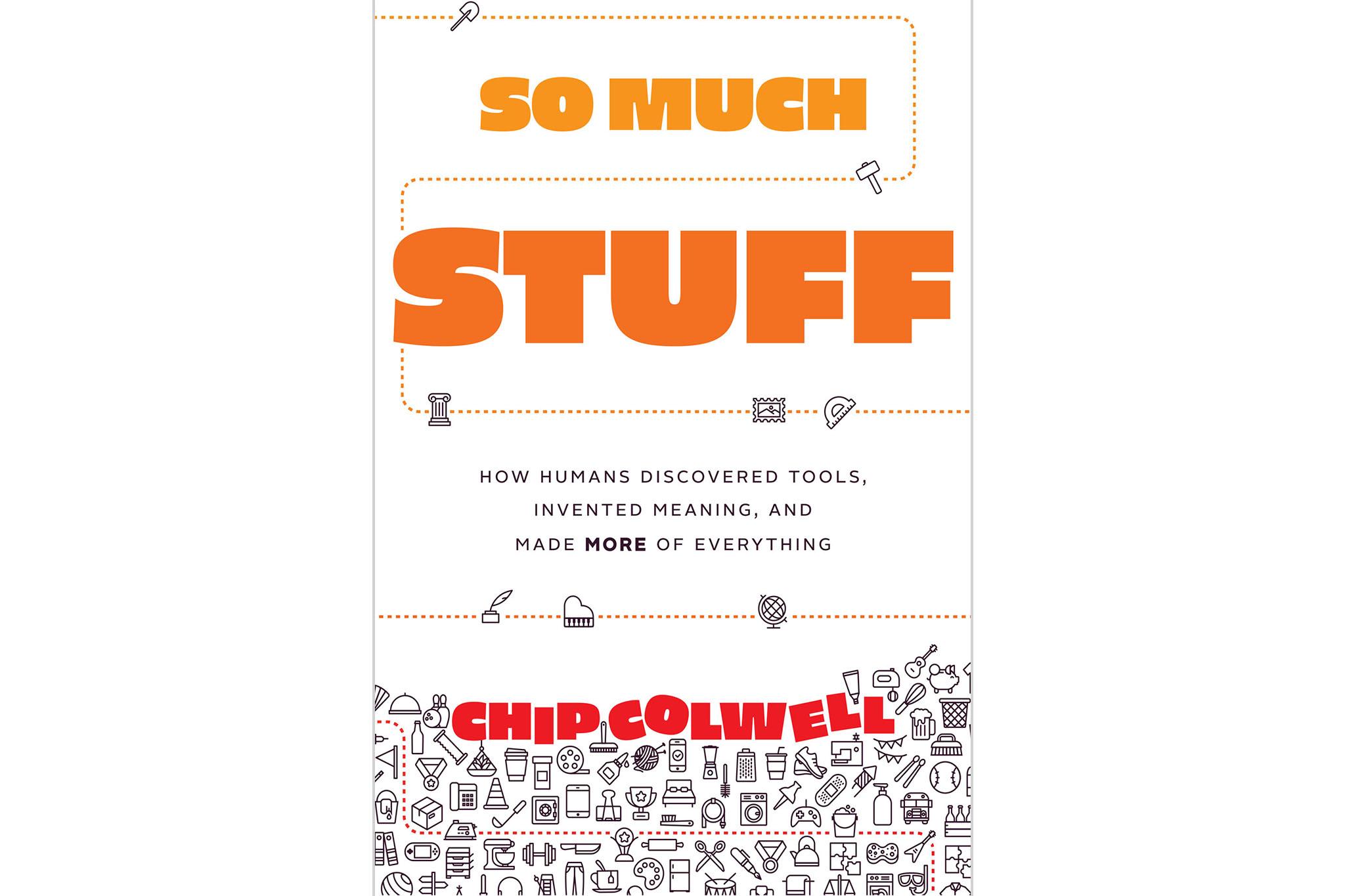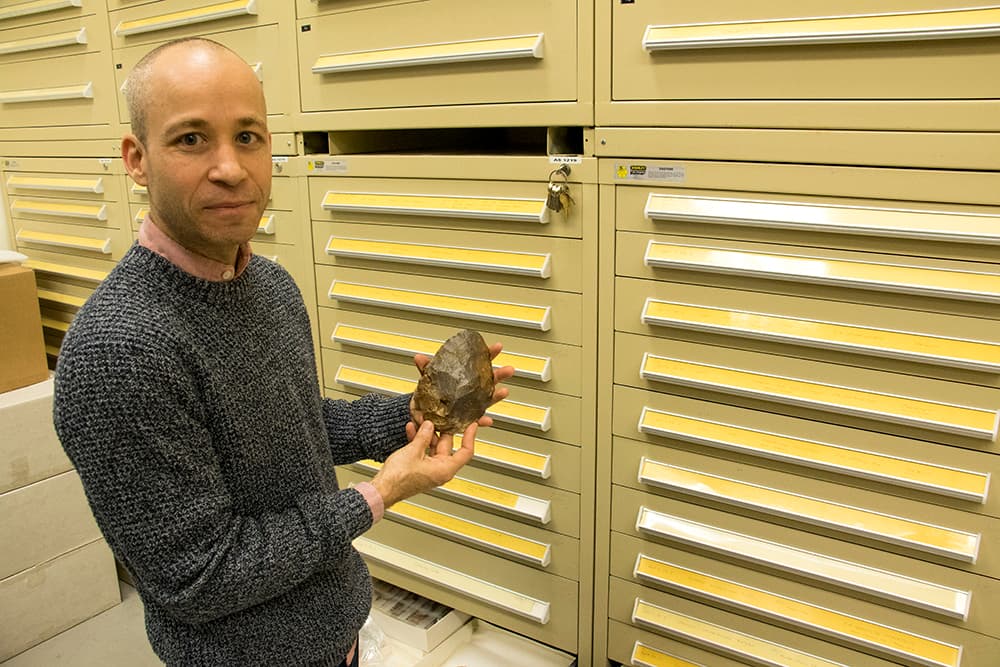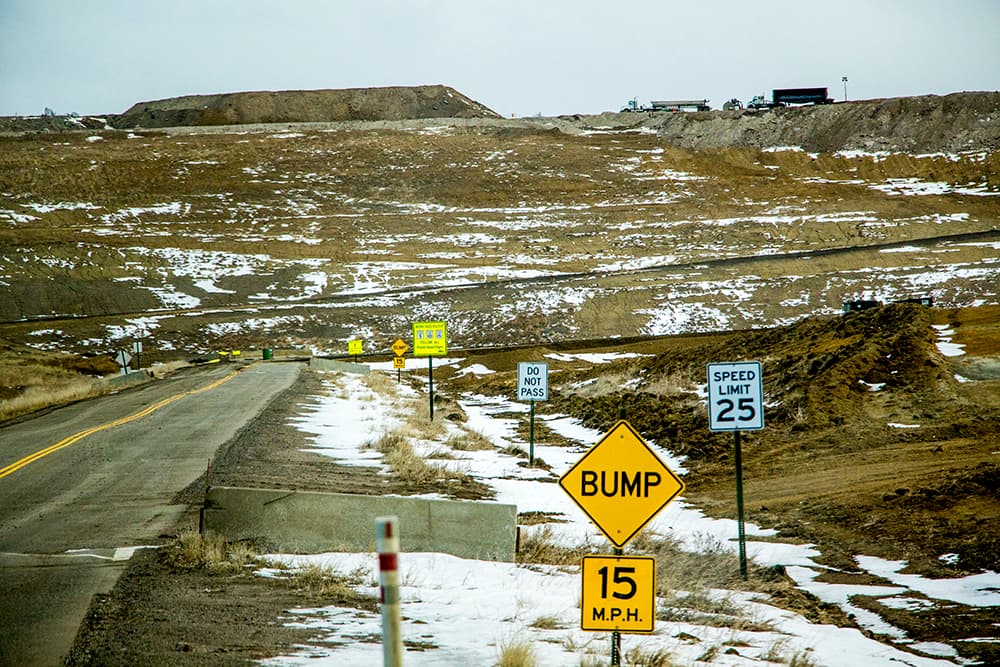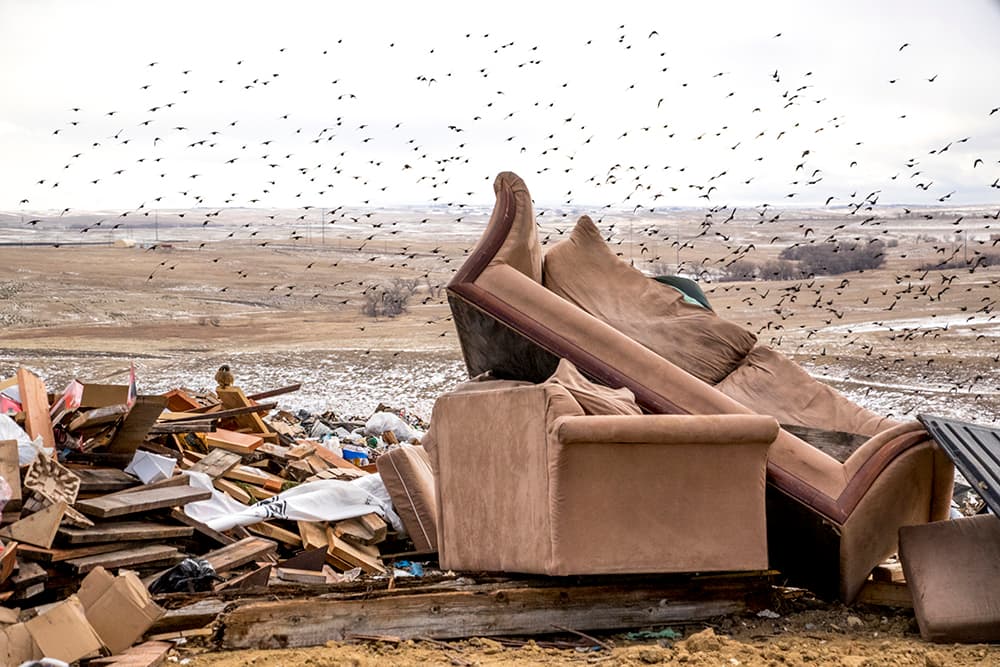Back in 2018, archaeologist Chip Colwell joined us on a trip to the Denver Arapahoe Disposal Site, the city's dump, where we stood atop a mountain of trash and waxed poetic about all the stuff we throw away.
"Landfills are the archaeology of us," he said from the garbage peak. "It's our future history."
When we met him, Colwell was the Denver Museum of Nature and Science's curator of anthropology. He later left the institution to pour his energy into "Sapiens," a digital magazine of anthropology he founded in 2016.
As someone who studies objects that people have left behind, he'd been thinking about deeper questions related to this place. The wasteland of discarded wood, paper, couches and tires hinted at deeper questions he couldn't ignore. So he started work on a book, a story about our relationship to our beloved objects that spans our entire existence.
"For me the seed of it was this mystery of how we, as a species, started out about 4 million years ago needing nothing at all to survive," he said, "and yet here we are, 4 million years later, just engulfed in things - the clothes we wear, or the houses we live in, or the planes we fly in, glasses, computers, cell phones, sporting equipment. All of it is what makes us human today. So what explains that 4 million-year transformation of going from nothing to everything?"
He finished the book and, next month, the fruit of his labor will be available to buy - and then placed on a shelf with all of the other books in your collection. It's called "So Much Stuff: How humans discovered tools, invented meaning and made more of everything."

Colwell traveled the world to dig into this epic tale.
He went to Ethiopia, where he learned about (and got to hold) some of humanity's first tools: split rocks transformed into axes. This marked the first of three major "leaps" that we made as we progressed from needing nothing to everything. Tools gave us more means to survive, then shaped us in their image.
"As we became more and more dependent on things, our bodies themselves began to change," Colwell told us. "If you have knives to be able to cut up meat or tough tubers, then you don't need sharp robust teeth. So there's this fascinating symbiosis between tools and our bodies, the tools begin to shift our own evolution."

From there, humanity assigned value to objects, invented things like religion, art and money - Colwell's second major leap - then began to mass produce things and value quantity above all else.
In "So Much Stuff," Colwell takes readers from that genesis in eastern Africa to Hong Kong, New Zealand, Europe and, excitingly, to Denver's dump. It's probably no surprise that he found stuff everywhere he went.
"This is a deeply human phenomenon. No matter where humans live, no matter what condition, everyone, every human, needs things to survive," he said.

Kevin J. Beaty/Denverite
While readers will mostly learn how we got here, Colwell said there was no way to avoid some existential questions. The three leaps that underpin his theory of Stuff weren't necessarily all positive.
"I can't help but ask, 'But what now?' Because we know our world is drowning in trash. We know our oceans are overflowing with plastic. You cant help but then ask the question: What does all this mean, and is this really for the best?" he said. "It's unavoidable. The environmental crisis is, in essence, a crisis of stuff. It's because of our endless consumption of the world's materials that has led us to this moment."
While the archaeologist dips into economic theory, sociology, art history and philosophy, he said his saga should be accessible to anyone who's interested in human history. It was published by the University of Chicago Press, so it did benefit from a peer review, but Colwell said he kept it jargon-free.
"So Much Stuff" hits booksellers on Nov. 9. We're proud Denver's garbage played a role in its inception.












